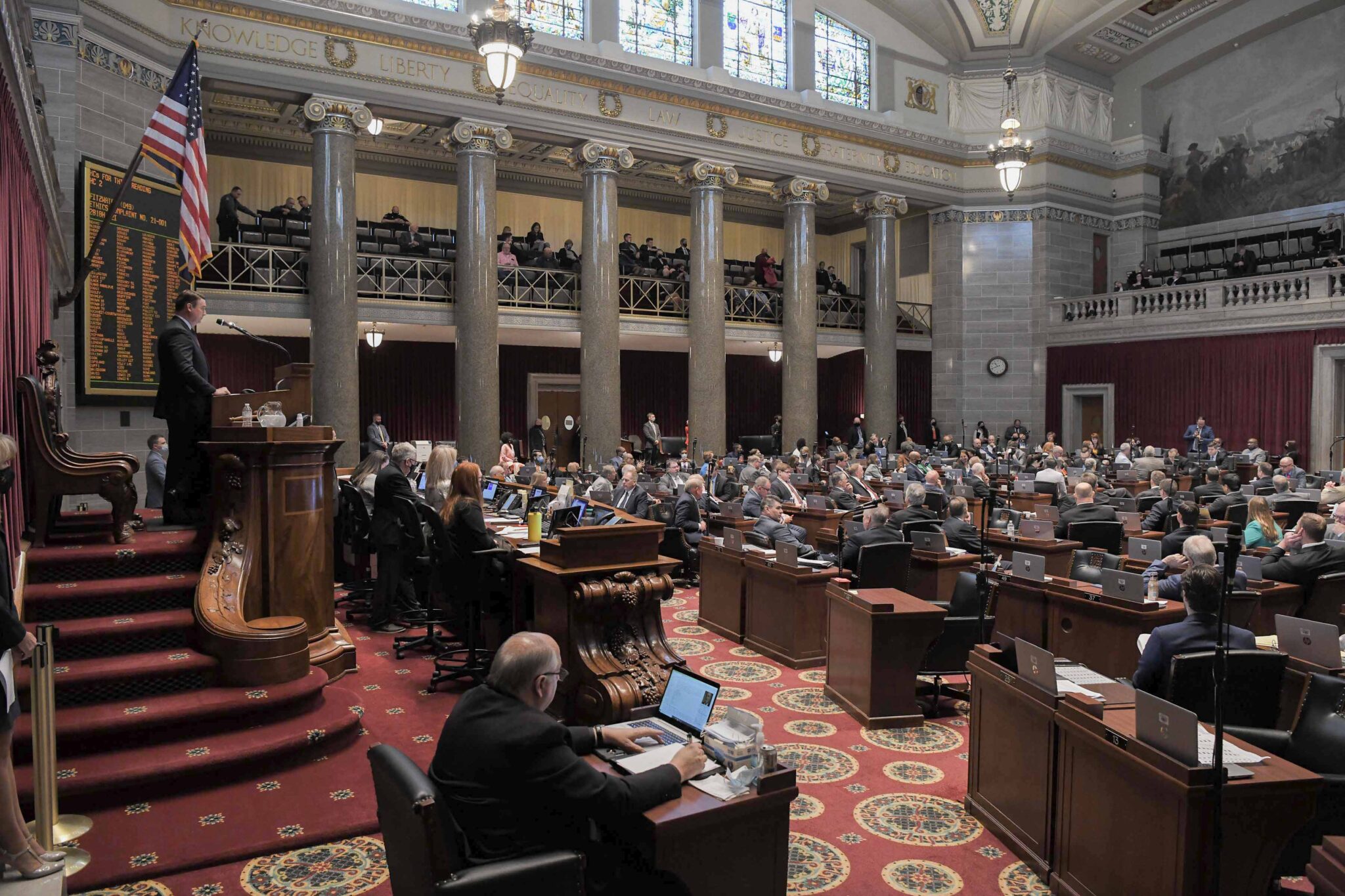Democrats prevail in hotly contested Missouri legislative races

Missouri House Democrats had their best election night in years Tuesday, flipping six seats while losing only one.
Democrats went into this year’s election knowing they had no realistic chance of regaining legislative majorities the party lost 20 years ago. They targeted, and obtained, gains from new district maps.
According to unofficial results, Republicans will enter the 2023 legislative session with 109 seats. The GOP won 114 seats in 2020.
It was “a good night,” House Democratic Leader Crystal Quade of Springfield wrote in a text.
In the state Senate, where 17 of 34 seats were on the ballot, Republicans held the 14 seats they were defending and Democrats kept their three seats. When the day began, Republican and Democratic leaders said the biggest uncertainty was in the 24th District of St. Louis County, where spending exceeded $3.8 million.
State Rep. Tracy McCreery held that seat for Democrats, taking 53% of the vote over political newcomer George Hruza.
The result was within the expectations for leaders in both parties, who said ahead of the polls closing that only a handful of districts were actually in doubt.
This year’s election is the first using House and Senate district maps redrawn following the 2020 census.
House districts became more competitive this year under a map drawn by a a bipartisan commission. The seats in doubt when the day began are all in the four most populous regions of the state – St. Louis, Kansas City, Springfield and Columbia.
The result, 54 seats, is the best the Democrats have achieved since 2010, when the party prevailed in 56 districts.
With 66 candidates running unopposed or without major party foes, Republicans needed to win only 16 of the 69 contested seats to retain their majority. They did that easily and rural Missouri, which began the day solidly Republican, remained that way after the tabulation was finished.
There were about 20 competitive seats this year, said Jonathan Ratliff, executive director of the House Republican Campaign Committee.
In 2020, 11 of those seats were won by Republicans and nine were won by Democrats. On Tuesday, Democrats won 13 of those 20 seats, losing only one of the seats they held previously.
Democrats picked up seats in Boone, Greene, Jackson, Platte and St. Louis counties. Republicans made their pick up in Clay County.
Some of the margins were tiny.
Republican Bill Allen defeated Rep. Mark Ellebracht by 47 votes in their Clay County district. In Jackson County, Democratic candidate Kemp Strickler defeated Republican hopeful J.C. Crossley in a contest decided by 37 votes.
Polling gave the GOP confidence it could shoot for a new record for total House seats won on election day, Ratliff said. That happened twice, in 2014 and 2016, when the GOP took 117 seats.
“In the last two weeks to four weeks, voters moved in the Republican direction,” Ratliff said. “We have played in some seats that normally we don’t have any business in.”
The 24th District Senate race was targeted early in the year by both parties. Democrats, who hold only 10 of 34 Senate seats, saw it as the seat they were most likely to lose and saw few opportunities for a pickup.
McCreery spent $1.1 million on the race, an amount supplemented by a political action committee supporting her that spent $527,000 and a Democratic PAC intended to help all candidates in tough Senate contests that bought $272,000 in television ads.
Hruza, a physician, funded much of his $1 million effort from his personal funds and was boosted by another $1.1 million spent by the Missouri Senate Campaign Committee, a Republican PAC.
Republican consultant John Hancock, a former GOP state chairman, worked for Hruza. The campaign had a focused message, he said, but the outcome was determined by get-out-the-vote efforts.
Democrats didn’t have the resources to challenge in Republican-held districts, said Senate Democratic Leader John Rizzo of Independence.
“The 24th is our best opportunity,” Rizzo said. “When we look at seats across the board, we don’t have the ability to play across five or six seats in the Missouri Senate, or field a self-funded candidate who can put in $1 million like George Hruza.”
Miss Clipping Out Stories to Save for Later?
Click the Purchase Story button below to order a print of this story. We will print it for you on matte photo paper to keep forever.

